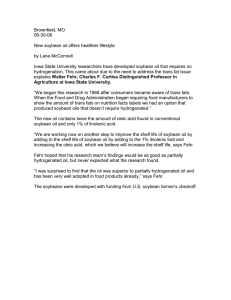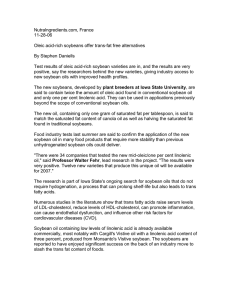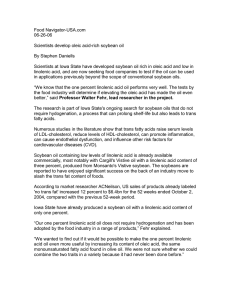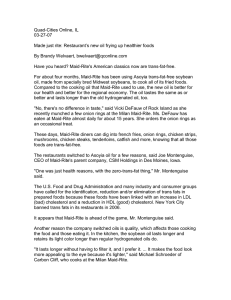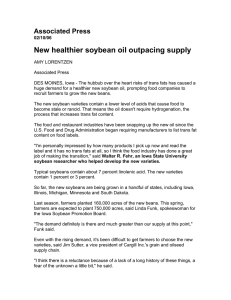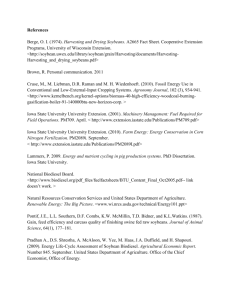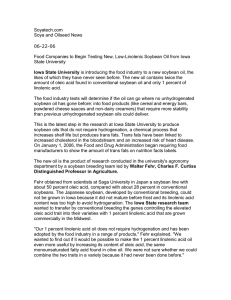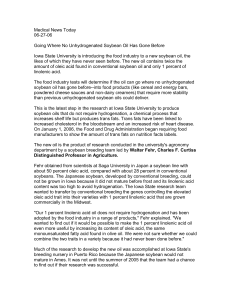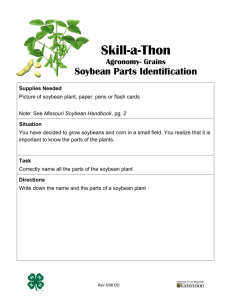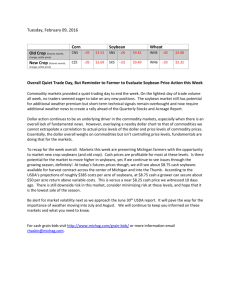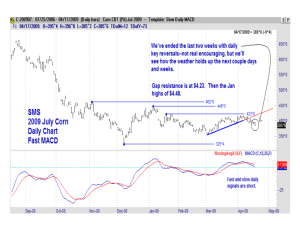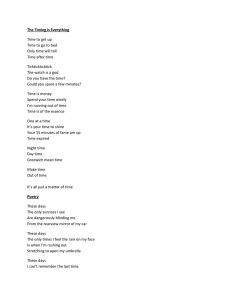Southwest Farm Press, KS 04-21-06 Genetic markers point toward low-linolenic-acid soybeans
advertisement
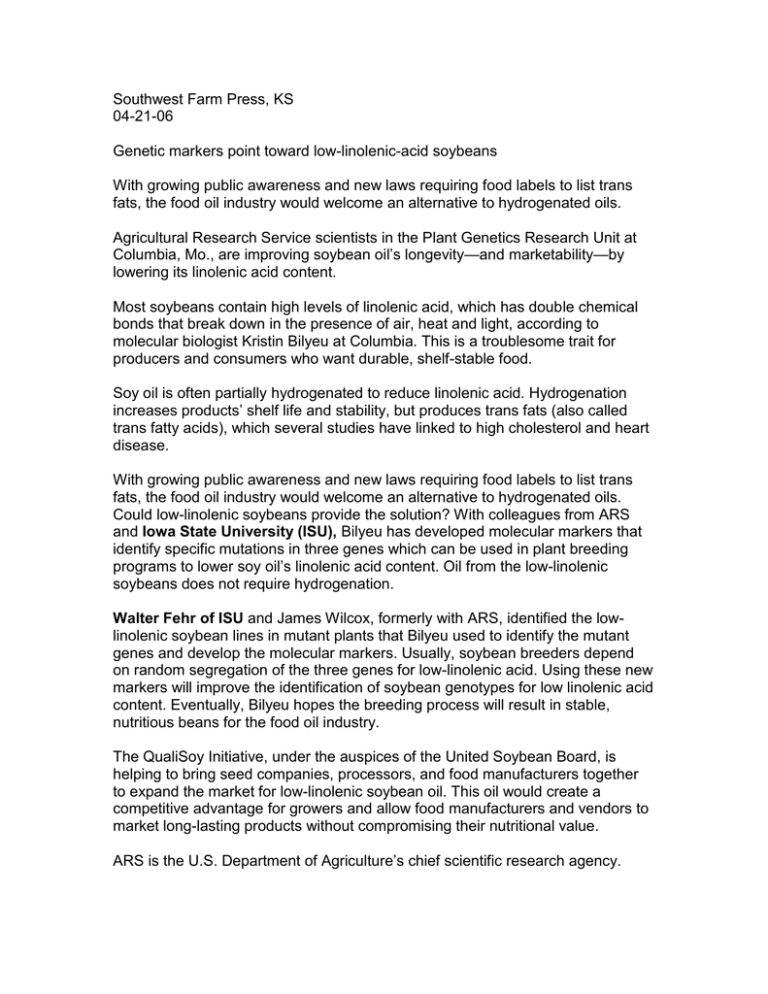
Southwest Farm Press, KS 04-21-06 Genetic markers point toward low-linolenic-acid soybeans With growing public awareness and new laws requiring food labels to list trans fats, the food oil industry would welcome an alternative to hydrogenated oils. Agricultural Research Service scientists in the Plant Genetics Research Unit at Columbia, Mo., are improving soybean oil’s longevity—and marketability—by lowering its linolenic acid content. Most soybeans contain high levels of linolenic acid, which has double chemical bonds that break down in the presence of air, heat and light, according to molecular biologist Kristin Bilyeu at Columbia. This is a troublesome trait for producers and consumers who want durable, shelf-stable food. Soy oil is often partially hydrogenated to reduce linolenic acid. Hydrogenation increases products’ shelf life and stability, but produces trans fats (also called trans fatty acids), which several studies have linked to high cholesterol and heart disease. With growing public awareness and new laws requiring food labels to list trans fats, the food oil industry would welcome an alternative to hydrogenated oils. Could low-linolenic soybeans provide the solution? With colleagues from ARS and Iowa State University (ISU), Bilyeu has developed molecular markers that identify specific mutations in three genes which can be used in plant breeding programs to lower soy oil’s linolenic acid content. Oil from the low-linolenic soybeans does not require hydrogenation. Walter Fehr of ISU and James Wilcox, formerly with ARS, identified the lowlinolenic soybean lines in mutant plants that Bilyeu used to identify the mutant genes and develop the molecular markers. Usually, soybean breeders depend on random segregation of the three genes for low-linolenic acid. Using these new markers will improve the identification of soybean genotypes for low linolenic acid content. Eventually, Bilyeu hopes the breeding process will result in stable, nutritious beans for the food oil industry. The QualiSoy Initiative, under the auspices of the United Soybean Board, is helping to bring seed companies, processors, and food manufacturers together to expand the market for low-linolenic soybean oil. This oil would create a competitive advantage for growers and allow food manufacturers and vendors to market long-lasting products without compromising their nutritional value. ARS is the U.S. Department of Agriculture’s chief scientific research agency.
